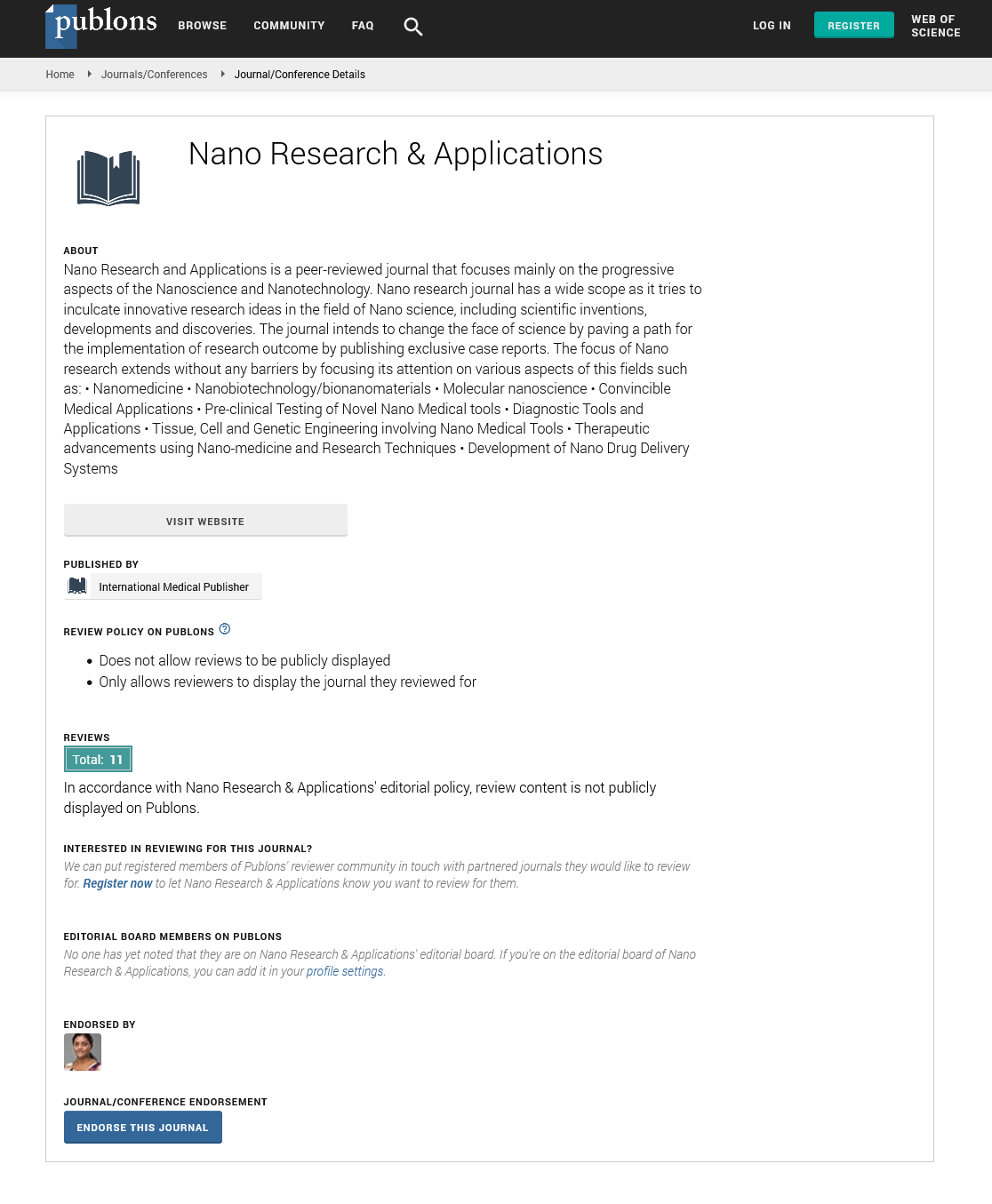ISSN : 2471-9838
Nano Research & Applications
Future of nanoscience in natural product drug discovery: applications in thymoquinone-based nanoformulations
EuroSciCon Conference on Nanotech & Nanobiotechnology Nano
July 12-13, 2018 Paris , France
Hala Gali-Muhtasib, Zeina Habli and Farah Ballout
American University of Beirut, Lebanon
ScientificTracks Abstracts: Nano Res Appl
DOI: 10.21767/2471-9838-C2-011
Abstract
Despite current advances in cancer therapy, cancer continues to be the second leading cause of mortality worldwide. The increasing cancer death rate and the rapid emergence of chemotherapy resistance necessitate the need to adopt new approaches for the discovery of novel anticancer agents. Therefore, a growing interest is heading towards ‘safe’ and widely available molecules, prominently from natural plant sources that have anticancer activities against human cancer cells with minimal toxicity to normal ones. Nanotechnology has played a role in overcoming the challenges of anticancer drug delivery, namely poor solubility and stability, undesirable cytotoxicity, rapid drug metabolism and non-specific drug targeting. This paper focuses on the future potential of clinical translation of plant-derived compounds with focus on the black seed active ingredient Thymoquinone (TQ), a promising anticancer molecule shown to inhibit cancer growth and progression in numerous systems both in vitro and in vivo. What makes TQ interesting is its efficacy and selectivity against cancer cells and lack of toxicity to normal tissues. In spite of the promising anticancer activities of TQ, the main limitation for its clinical translation lies in its hydrophobicity, poor bioavailability, limited solubility and high capacity to bind to plasma proteins. This can prevent TQ from reaching its targeted tumor sites. Several TQ-nanoparticle (TQ-NP) formulations have been tested and found to have enhanced anticancer and anti-inflammatory effects in comparison to free TQ. Our recent work presented evidence on a novel TQ formulation having improved activity and enhanced delivery in breast cancer. We showed that the efficacy of the TQ-NP formulations depends on the time for drug uptake, drug concentrations, route of entry and trafficking and cellular interactions. I will provide an overview of the various TQ-NP formulations, their characteristics and applications summarize limitations for developing biologically successful TQ-NP models and discuss up-to-date solutions to improve TQ bioavailability and anticancer potential for cancer therapy.
Biography
Hala Muhtasib is Professor of Cell Biology at the American University of Beirut. She received her PhD from Kansas State University, USA in 1990. Her research interests are in Cancer Chemotherapy and Anticancer mechanisms of plant-derived compounds. She has over 90 publications in peer-reviewed journals and is the recipient of four research achievement awards.
E-mail: amro@aub.edu.lb
Google Scholar citation report
Citations : 387
Nano Research & Applications received 387 citations as per Google Scholar report
Nano Research & Applications peer review process verified at publons
Abstracted/Indexed in
- Google Scholar
- China National Knowledge Infrastructure (CNKI)
- Directory of Research Journal Indexing (DRJI)
- WorldCat
- Publons
- Secret Search Engine Labs
- Euro Pub
Open Access Journals
- Aquaculture & Veterinary Science
- Chemistry & Chemical Sciences
- Clinical Sciences
- Engineering
- General Science
- Genetics & Molecular Biology
- Health Care & Nursing
- Immunology & Microbiology
- Materials Science
- Mathematics & Physics
- Medical Sciences
- Neurology & Psychiatry
- Oncology & Cancer Science
- Pharmaceutical Sciences
